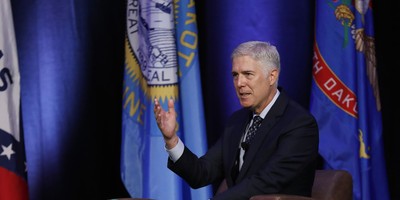My time in the military and studying military history and operations has taught me that transitions are always a vulnerable period. It is vital to have a solid team that is looking not just at the time before them, but is strategically focused on the future. One of my favorite passages in the Bible comes from the Book of Joshua, my favorite biblical leader. As God told him, early on in Chapter One, “Moses my servant is dead.” In other words, Joshua was it. And the Lord commanded him three times to “be strong and courageous,” and God laid out His guidance as to how Joshua would be successful and find prosperity wherever he went.
I remember taking command, first as a young captain in the First Infantry Division of an artillery battery with 131 soldiers and then later as a lieutenant colonel in the 4th Infantry Division of an artillery battalion with nearly 500 soldiers. It is in those early days of the transition where a leader is most challenged. The most important aspect in that transition is to lead by example, not to issue out directives and edicts for which you do not hold yourself accountable. The Army used to have a simple leadership philosophy of “Be, Know, Do,” which I found to be both insightful and useful.
You MUST evidence that you are the leader, but do so with humility. It is important that you seek the counsel of those around you, but recognize when to stop soliciting ideas and act. And then you must make the decision, but be willing to incorporate the thoughts, perspectives, and ideas of others if valid, and consistent with your vision. That is why a good leader issues their vision, intent, and guidance early and with ample specificity, but not to the degree of micromanagement. And trust me, you do not want people who must constantly come back seeking your approval for every little step or decision. What a good leader seeks out is what we called “fire and forget” individuals, kind of like was detailed in the short study called “message to Garcia.”
Recommended
It is easy to follow a leader who is not confused that they are the leader…not a dictator, who drones about having a “pen and a phone.”
Secondly, what can aid in the dark uncertainty of transitions is a leader with a clear direction. In the Army we had what was called “Commander’s Intent” and it had three components – purpose, method (key tasks), and endstate. Anything a good military commander did in conveying his vision was expressed in those terms, and therefore easily understood. It is said that the great Napoleon had a corporal to whom he would give all of his orders first. His belief was that if the corporal understood him, then the generals would have no excuse. Directives must be simple to comprehend. When you are president, you must be clear so the American people can grasp your directives. That was the power of Ronald Reagan – simple, effective communications. Reagan basically had two objectives in his tenure; restore the American economic engine and defeat the Soviet Union. And he explained his policy goals in such a way that this nation clearly understood and felt the results of each.
I always say, no one follows a dummy in a firefight. People gain confidence in a leader who is competent and knows how to lead. Such a quality reduces the dark uncertainty of transitions.
Lastly, a leader must do. I love the examples of three men, warrior leaders, from ancient military history – Leonidas, Alexander the Great, and Hannibal. And my favorite all time case study in leadership, Colonel Joshua Lawrence Chamberlain. I admire these men because they “did” as leaders. They did not stand back in the rear; they were there, with the men on the front lines. In the case of Leonidas, he died right there in the gap of Thermopylae. Alexander the Great led his companion cavalry and wore a brilliant white plume upon his helmet in order to be seen on the battlefield by his troops, and the enemy. Hannibal was in the mix at the Battle of Cannae. And it was Chamberlain who stood on Little Round Top and led a bayonet charge at the Battle of Gettysburg.
Now, things are a little different. I am not advocating for each new president to put on a uniform. However, he must express a willingness to do so; to go to the frontlines, or at least have someone close in their cabinet who will. The key to a leader “doing” is to show that they will live under the same laws that they are signing. We live in a constitutional Republic, not a constitutional monarchy.
As America peacefully transitions, regardless of what the insidious progressive socialist protesters do, the world is watching. And just the same as with a new military commander, there will always be that one Soldier, Sailor, Airman, or Marine that will seek to undermine, challenge your new position. The unit will be looking to see if the new leader will be the keeper of the standard. And that is why early on, you must crush the challenge and send a clear message.
The new President Donald J. Trump must give clear commander’s intent, and trust his team to execute that guidance. He needs to have a strategic planning group that is not just looking at the first 100 days, but the first two years. He must instill confidence in himself as a leader, knowing that running a private sector business is quite different from governing a nation, being the Head of State of America, and wearing the most important title of Commander-in-Chief of our Armed Forces. Mr. Trump must anticipate events and trends, and be able to proactively confront impending issues – such as a potential interest rate increase by Federal Reserve Chairman, Janet Yellen. He must recognize that the enemies of America are planning their next attacks and assaults against us, and the very ideal of freedom and liberty.
Mr. Trump cannot be an intransigent ideologue, which is what we have had these past eight years. He cannot be wedded to a specific plan but retain flexibility…as we say in the military, “no plan survives first contact.”
But, if I can offer a final thought to President-elect Trump that will enable him to cast aside the dark uncertainty of transitions, it comes from Alexander the Great – “Fortune favors the bold.”
National Center for Policy Analysis Executive Director Allen West was born and raised in Atlanta, Georgia in the same neighborhood where Dr. Martin Luther King, Jr. once preached. He is the third of four generations of military servicemen in his family.

























Join the conversation as a VIP Member